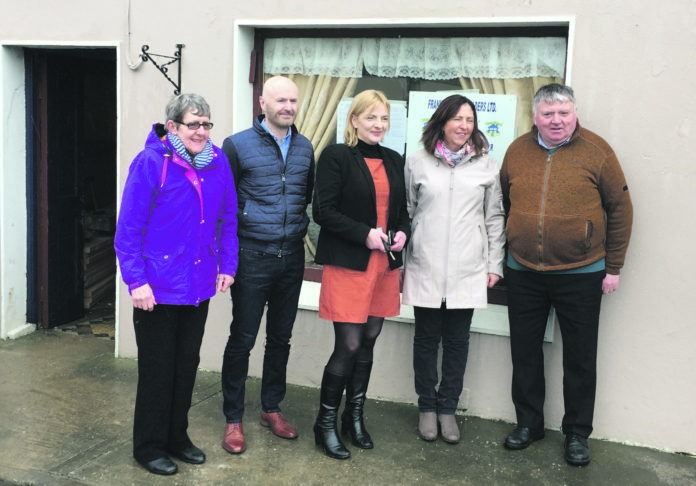
MUNSTER MEP Liadh Ní Riada has congratulated the people of Kilmeedy in County Limerick for their work on developing local co-operatives after receiving LEADER funding of €90,346.
But the Sinn Féin politician added that the success of the project in Kilmeedy also served to illustrate the huge potential that is being wasted in other communities around the country due to the government’s changes to the LEADER application process.
Miss Ní Riada, who sits on the EU Budgets Committee and has campaigned extensively on LEADER, visited the local community with Limerick councillor Seamus Browne last week.
“I first wanted to congratulate the community on what an outstanding job they have done,” she told the Limerick Post.
“They have really shown just how effective the LEADER programme can be and the tangible results it can have for communities if they are given access to it. However, I can’t help but feel frustrated that projects like this could be happening all around the country at this very moment were it not for the Government’s continued shambolic restructuring and, frankly, abuse, of the LEADER programme.
“In fact, just a few miles from here in Kantoher, the community there is trying to do something similar and are finding their efforts persistently hampered by the outrageous changes to the application process the Government has made.”
Communities across the country, she said, have complained about this.
“I have brought delegations of community groups to Europe to speak directly to the Commission on this, at this stage it is clear that the Government’s mishandling of the LEADER programme is entirely deliberate. There are huge amounts of money available for projects like the one in Kilmeedy but the Government is denying people access to it and I cant help but feel that were this not a largely rural issue it would be a national scandal.
“The money available is merely the means, what the government is denying towns and villages across the country is businesses, public facilities, community centres, equipment, training and events. These are the difference between dying villages and thriving communities,” she concluded.
by Alan Jacques









